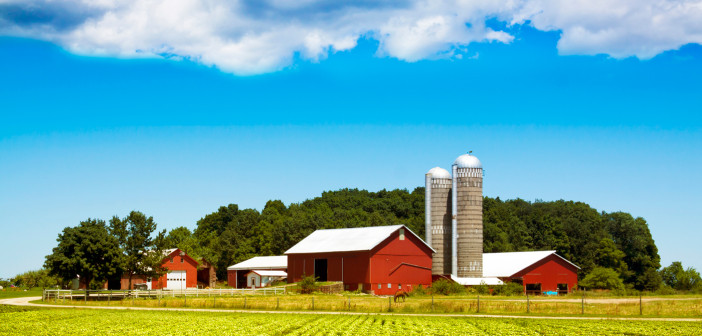Buying a piece of real estate to use for farming is a completely different ballgame than buying a residential home. Not only do you have to find the perfect acreage that will suit your needs, but you also have to be aware of inexperienced real estate agents, your soil quality, and even complex water rights. If you’re contemplating starting a farm and don’t know where to start in the real estate market, follow some of these tips to get started.
Find a Rural Land Real Estate Agent
Most real estate agents are well versed in residential and turnkey properties, but they might not know a lot about purchasing land that’s suitable for agriculture. You’ll want to find an agent who has experience in purchasing agricultural properties. They’ll know everything you need to know about easements, soil types, water rights, and zoning laws. The last thing you want is to drop a hefty six figures on a piece of land whose soil is drained of nutrients or your water rights belong to someone else.
How Close Will You Be to Your Niche Markets?
If you’re getting into farming to raise crops or livestock, you’ll want to consider being close to the markets where you’ll be selling your product and making all of your money. Will you have to haul your hay or animals over fifty miles to sell/slaughter them? Will the return on your labor be worth spending that much in gas and transportation? Sometimes it’s more business-savvy to be closer to your market than it is to be closer to a town.
Get Your Soil’s Information Before Buying
According to Eagleland.com, the quality of your soil will make or break your farming operation. Whether you’re raising livestock or growing wheat, you need good soil to grow your crop and to sustain a healthy herd of animals. If you want to be really thorough, you can send soil samples off to local universities for a complete assessment. This is necessary if you’re planning on running an organic operation to ensure the soil isn’t laden with heavy metals that will exclude you from an organic certification. You can also access the information you need on the NRCS website. You type in your address and you will be able to see the aerial map of your property and find all of the information you need on the soil type, classification, drainage class, and the yield data for the different types of crops and livestock. This should be enough to tell you if this will be a good place to grow hay or if you’re better off sticking to pens filled with pigs and chickens.
Talk Water
Water is everything in farming. Ask any grizzled old farmer and the majority of his struggles will center around water–or the lack of it. Even if you haven’t found the perfect farm yet, once you’ve narrowed down an area, you’ll want to have a chat with the county water master to learn about your water rights and read the water certificate. This certificate will inform you of how much water you can use in the area and how much irrigation you need to do to keep your water rights. Once you pick a specific property, you’ll want to investigate all water sources: wells, ponds, rivers, irrigation ditches, etc. Properties with natural water sources can have specific limits on how much you’re allowed to pump for irrigation, and you can find yourself faced with some hefty fines if you pump too much water from the stream on your property.
The biggest piece of advice farm owners have for new buyers is to do your research. Have the guidance of an experienced real estate agent, but take it into your own hands and keep researching even if you have all of your questions answered. Knowing all of your rights can save you a ton of trouble, money, and paperwork down the road.




